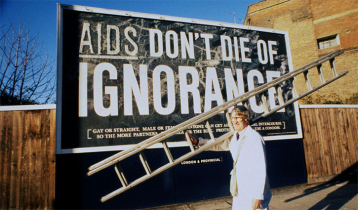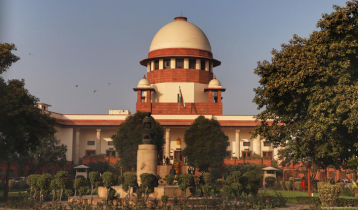Facebook will never sell your info without consent: Zuckerberg
4 || risingbd.com

International Desk: Facebook will never sell your information without consent.'
That is the impression Facebook CEO Mark Zuckerberg was keen to give during a 2009 interview, but events in recent weeks suggest that was not the whole story.
Video footage of the conversation was posted to Twitter by NSA whistleblower Edward Snowden in the wake of the Cambridge Analytica scandal.
It follows revelations that the Trump-affiliated consulting firm obtained data on at least 50 million unsuspecting Facebook users.
This information was used to target voters in the US, based on psychological profiling, with political adverts spreading disinformation.
Facebook is also facing criticism for collecting years of data on call and text histories from Android users.
Snowden sent a tweet yesterday containing a video that showed Zuckerberg addressing privacy concerns on his website.
In the tweet, the former CIA computer specialist implored his followers to spread the clip beyond the social media site, attaching a download link to the original file.
The interview was conducted by the BBC journalist Laura Trevelyan, who pressed Zuckerberg on his firm's handling of data.
Ms Trevelyan: So who is going to own the Facebook content, the person who puts it there, or you?
Zuckerberg: The person who puts the content on Facebook always owns the information, and this is why Facebook is such a special service.
Ms Trevelyan: And you won't sell it?
Zuckerberg: No, of course not.
Ms Trevelyan: Just to be clear, you're not going to sell, or share, any of the information on Facebook?
Zuckerberg: We're not going to share people's information except for with the people that they've asked for it to be shared.
Zuckerberg's public 2009 promise is in stark contrast to his private thoughts at the time of launching his Facebook.
During an instant messenger conversation with a friend at the age of 19, he branded early users of his social network ‘dumb f***s’ for trusting him with their data.
First picked up on by the media in 2010, these comments have also re-surfaced in the wake of Cambridge Analytica.
The leaked conversation was published in a Medium blog post by journalist Maria Bustillos.
Ms Bustillos said it shows that Zuckerberg has a long history of disregarding the privacy expectations of users over handling of their data.
The conversation, which has since been discussed widely on social media, ran as follows:
Zuckerberg: Yea so if you ever need info about anyone at Harvard, just ask. ‘i have over 4000 emails, pictures, addresses, sns
Friend: what!? how’d you manage that one?
Zuckerberg: people just submitted it. i don’t know why. they “trust me”. dumb f***s.
Zuckerberg may have been saved from the current privacy backlash had he listened to his rival, the late Steve Jobs, it seems.
Footage of the former Apple boss warning over Facebook's handling of private data dating from 2010 has also re-appeared in recent days.
Speaking at the time of a previous privacy row involving the social network, Jobs warned that privacy rules should be spelled out in 'plain English and repeatedly.'
Jobs made the comments at The Wall Street Journal’s (WSJ) All Things Digital conference, held in Los Angeles, where Zuckerberg was in the audience, waiting to be interviewed.
Walt Mossberg, the WSJ'S principal technology columnist from 1991 to 2013, asked Jobs about his thoughts on recent privacy issues around Facebook and Google, as well as Silicon Valley's stance on handling sensitive data.
Facebook was at the time in the process of updating its privacy controls, in light of criticism that it was forcing people to share their data.
Google, meanwhile, had been accused of secretly intercepting Americans' data sent over unencrypted Wi-Fi routers during a two-year period.
In response, Jobs said: 'Silicon Valley is not monolithic. We’ve always had a very different view of privacy than some of our colleagues in the Valley.
'Privacy means people know what they’re signing up for, in plain English, and repeatedly.
'I’m an optimist; I believe people are smart, and some people want to share more data than other people do.
'Ask them. Ask them every time. Make them tell you to stop asking them if they get tired of your asking them. Let them know precisely what you’re going to do with their data.'
'A lot of people in the Valley think we’re really old-fashioned about this, and maybe we are, but we worry about stuff like this.'
Zuckerberg took out full-page adverts in nine major US and British newspapers over the weekend to apologise for the Cambridge Analytica scandal.
In the ads, the Facebook founder vowed to clamp down on allowing third parties access to data which can be sold on.
The ads, done in simple black text against a plain white background, were headlined: 'We have a responsibility to protect your information. If we can't, we don't deserve it.'
'You may have heard about a quiz app built by a university researcher that leaked Facebook data of millions of people in 2014,' the apology begins.
'This was a breach of trust, and I'm sorry we didn't do more at the time. We're now taking steps to make sure this doesn't happen again.'
'We've already stopped apps like this from getting so much information. Now we're limiting the data apps get when you sign in using Facebook.'
'We're also investigating every single app that had access to large amounts of data before we fixed this. We expect there are others. And when we find them, we will ban them and tell everyone affected.'
Finally, we'll remind you which apps you've given access to your information - so you can shut off the ones you don't want anymore.'
'Thank you for believing in this community. I promise to do better for you.'
The apology is formally signed off by the 33-year-old Facebook chief.
The Facebook data scandal deepened over the weekend after users found the social network had harvested information including call logs and text messages.
Some users discovered the Silicon Valley giant had been storing complete logs of incoming and outgoing calls and text messages.
Others reported that data such as contacts in their address books, social events in their calendars and even friends' birthdays had been stored.
One user, Dylan McKay, reported that from October 2016 to July 2017 his logs contained 'the data of every [mobile] call I've made, including time and duration' and 'data about every text message I've received or sent'.
Rather than delete an account entirely, the social media site encourages people to 'deactivate' their profile as this leaves all personal data on its servers.
However, when users request to permanently delete their accounts, the site suggests: 'You may want to download a copy of your info from Facebook.'
Emma Kennedy tweeted that she had found that Facebook had recorded 'every single phone number in my contacts.
'They had every single social event I went to, a list of all my friends and their birthdays, and a list of every text I've sent'
'They have plundered my phone. They have phone numbers of people who aren’t on Facebook. They have phone numbers of household names who, I’m sure, would be furious to know their phone numbers are accessible. I’m appalled.'A Facebook spokesman said: 'The first time you sign in on your phone to a messaging or social app, it's a widely used practice to begin by uploading your phone contacts.
'Contact uploading is optional. People are expressly asked if they want to give permission to upload their contacts from their phone – it's explained right there in the apps when you get started.
'People can delete previously uploaded information at any time and can find all the information available to them in their account and activity log from our Download Your Information tool.'
The company says an opt-out for uploading contacts is available and users can delete all uploaded contacts by turning off the continuous uploading setting in Facebook's Messenger app.
All previously uploaded contacts are deleted when a user permanently removes their profile. Contacts will also no longer continue to be uploaded.
Source: The Mail
risingbd/March 29, 2018/Mukul
risingbd.com





































